To celebrate World Children’s Day in 2021 we created a timeline to spotlight the history of children's activism and protest, from the sugar boycotts of the 1790s to #FridaysForFuture. You can view our original thread on Twitter.
What have we missed? Please help us to add any events we've missed by leaving a comment at end of this page or by contacting us.
Sugar boycotts, Britain, 1790s-1820s.
Georgian children voluntarily gave up sugar to protest against slavery and support abolitionists. Others signed antislavery petitions and produced anti-slavery needlework.
You can read more about the boycotts at The Times or on the University of Exeter's website.
Marlborough College rebellion, England, November 1851.
Students rebelled against "spartan" conditions at the school with a 4-day strike and a week of tumult and anarchy. School property was destroyed but order was finally restored. For a longer discussion of school unrest in 18th and 19th Century England, see Tom Brown's School Days.
Schoolboys’ Strike, Broken Hill, New South Wales, 1892.
Seven years before a wave of school protests rocked Britain, students in unionised mining towns in the Australian colonies were planning and participating in strike action against their teachers.
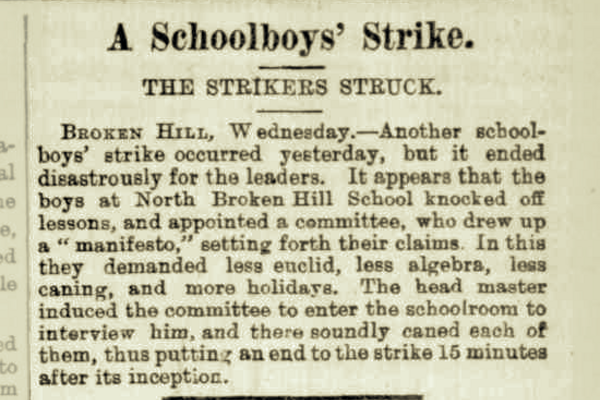
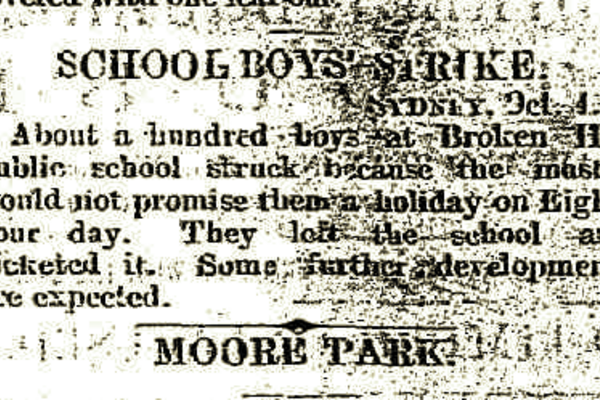
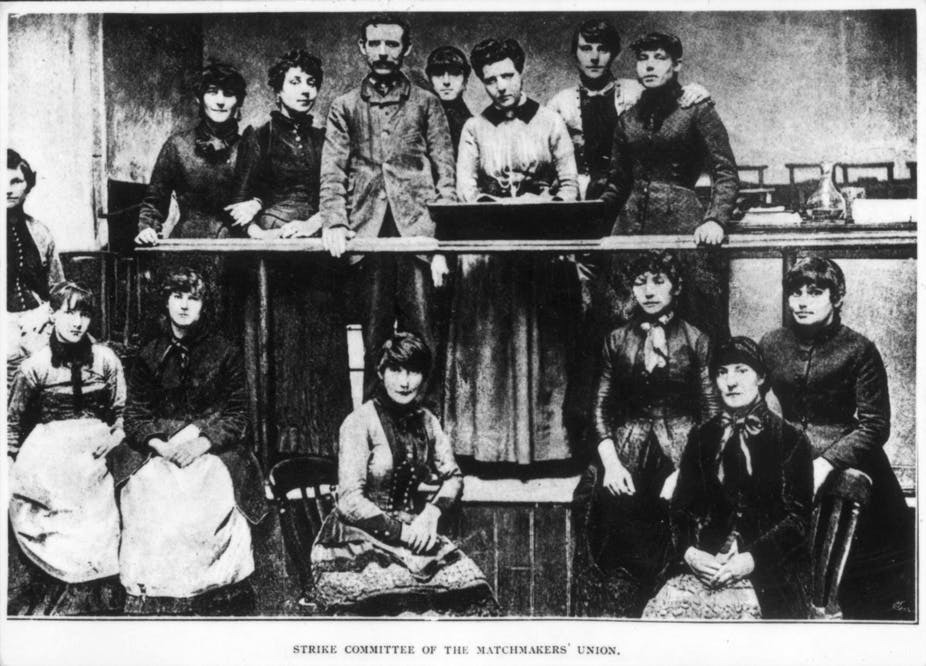
Matchgirls’ Strike, East London, 1888.
Protesting poor and oppressive working conditions, toxic phosphorous vapours, 1400 girls and women at Bryant and May's match factory began industrial action.
Image: Annie Besant and the Strike Committee
Llanelli School Strike, Wales, 1889.
Thirty pupils from Bigyn School walked out of their classroom in protest at the "unjustified" caning of a fellow boy. The walk out sparked a strike wave across the British Empire.
Newsboys’ Strike, New York, 1899.
Thousands of ‘newsies’ as young as seven began a strike against two newspaper moguls in a battle over fair wages. Within two weeks the newspapers were forced to the negotiating table by drastic falls in sales.
Burston School Strike, England, 1914-39.
In April 1914 the students at the Burston village council school walked out in protest at the sacking of their beloved teachers. The strike and boycott lasted for some 25 years.
Children’s Crusade, Alabama, 2 May 1963.
Thousands of African American students skipped class to march to downtown Birmingham to protest segregation. Hundreds were arrested. Others were blasted with hoses, clubbed by police and attacked by police dogs. The Crusade, or Children’s March, was a turning point in the Civil Rights Movement, compelling Kennedy to support federal civil rights legislation and the eventual passage of the Civil Rights Act of 1964.
"Mighty Times: The Children's March" reveals a never-before-told chapter in the Civil Rights movement, focusing on more than 4,000 black schoolchildren who deserted classrooms in Birmingham, AL, on May 2, 1963, touching off a week of mass demonstrations and rioting that shocked the nation and rocked the world.
Freiburg price struggles, Freiburg /Br, Germany, 1968
Pupils blocking tram tracks during a demonstration against a rise in public transport fares.
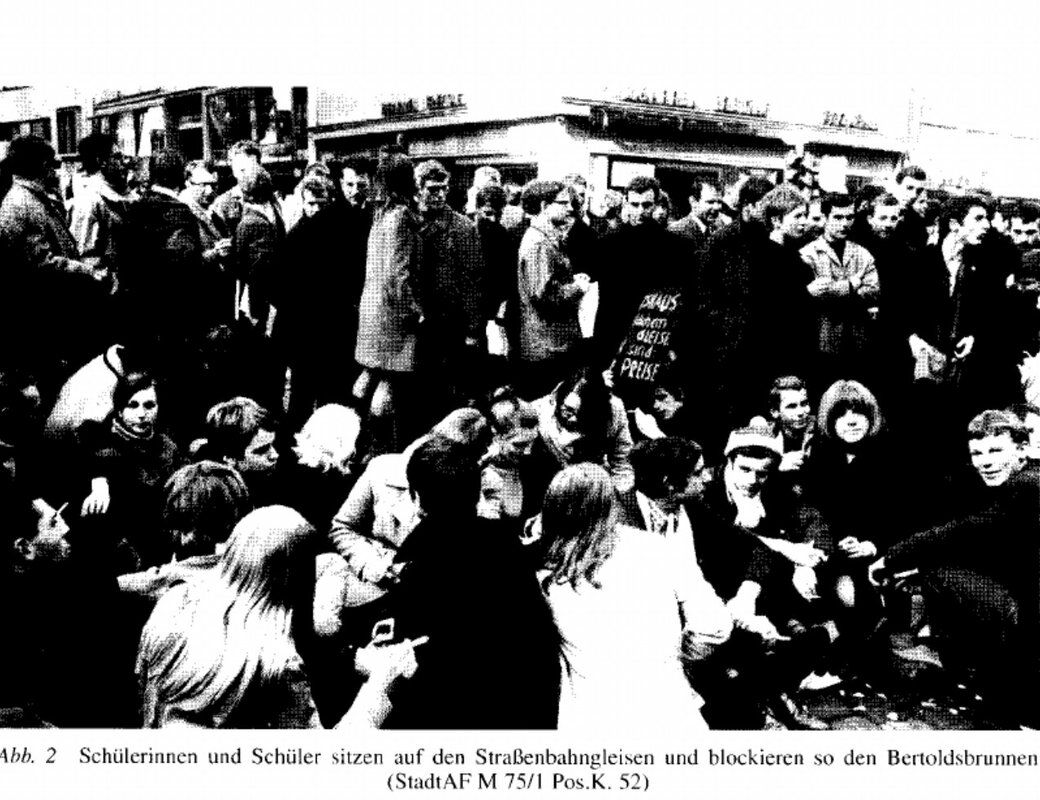
The Liverpool School Strike, 1985.
Some 10,000 schoolchildren skipped school to protest against the Thatcher government’s controversial Youth Training Scheme which paid students £30 per week. Many saw the scheme as exploitative.
Earth Day, United States, 1970
Die-ins, clean ups and marches. The first Earth Day was a youth-driven event that sparked the participation of 10,000 schools. With 20 million Americans participating it was one of the largest demonstrations in US history.
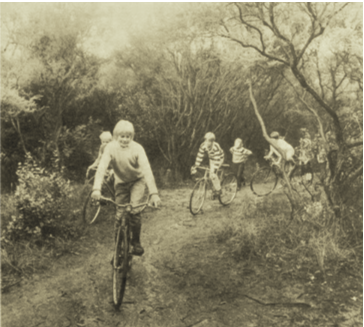
Battle for Kelly's Bush, Sydney, 1970.
Children took collective action against the proposed development of Kellys Bush in Hunter’s Hill, Sydney, pulling out the survey pickets and lines. This conflict would become the first in a series of union-environmental alliances known as Green Bans.
The Stepney schoolchildren's strike, east London, 27 May 1971
Eight hundred pupils went on strike and successfully won reinstatement of a teacher who was sacked for publishing a book of pupils' poetry.
School Action Union Strike, London, 1972
On 4 May a protest by about 200 boys - aged between 11 and 16 - at Quinton Kynaston School in north London trigged a series of demonstrations which culminated in march of 10,000 pupils was organised by the Schools’ Action Union and the National Union of School Students on 17 May.
Read more:
- Past Tense Blog - Today in London’s educational history, 1972: a Schools Action Union strike and demonstration
- Nickel in the Machine -School's Out in London and Steve 'Ginger' Finch
School Strike, West Germany, January 1991.
West German children went on school strikes against the Second Gulf War in huge numbers (e.g. 30,000 in Berlin) and blocked traffic by walking round junctions in circles.
Pro-democracy protests, Hong Kong, 2019
Two years ago, as the fight for democracy intensified in Hong Kong, more than 900 minors were arrested in pro-democracy protests.
Global Climate Strike, Planet Earth, 2019.
In September 2019, in a movement kickstarted by Greta Thunberg, six million people took to the streets, uniting across timezones, cultures and generations to demand urgent action on the climate crisis.
School protests, Cameroon, December 2017-21.
Schoolchildren, their parents and teachers hold a protest after gunmen opened fire at a school in Kumba, western Cameroon.
Blockade protests, Gaza, Palestine, 2021.
Earlier this year hundreds of Palestinian children gathered on streets in the Gaza Strip to appeal for an end to the 15-year long Israeli blockade.
Further Reading
Iain McIntyre, '“When the bombs drop, school stops” – Eight decades of Australian school strikes and direct action'.
Helen Sunderland, 'Children’s strikes, school walk-outs, and youth political activism'.
Alice Haworth-Booth, 'Children on Strike'.

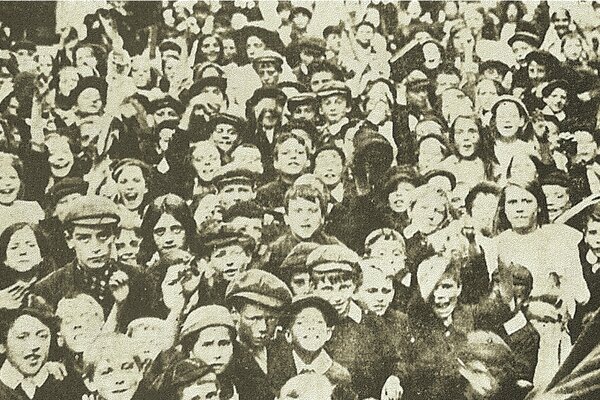
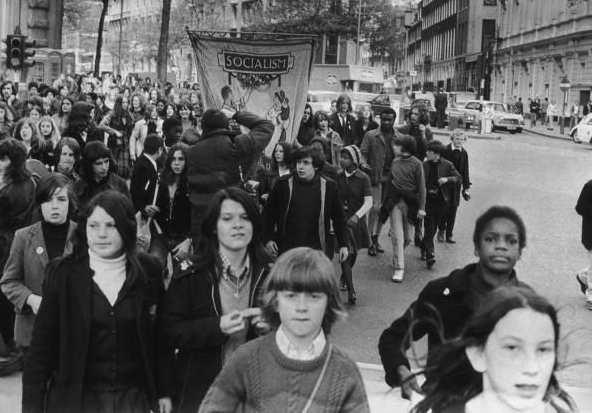
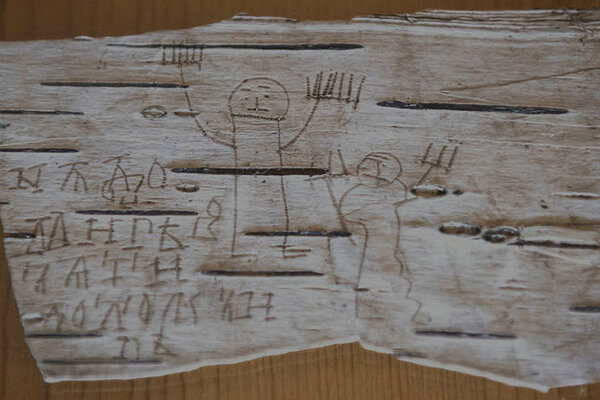
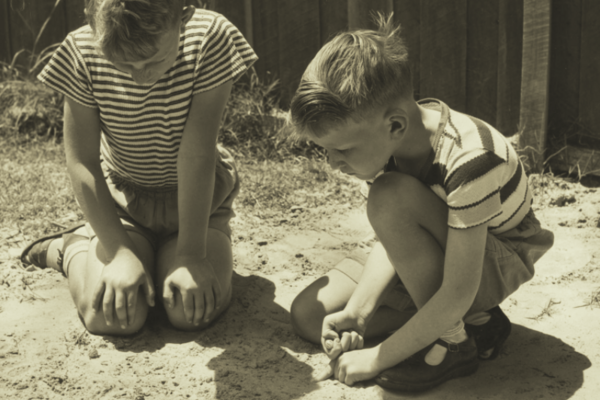
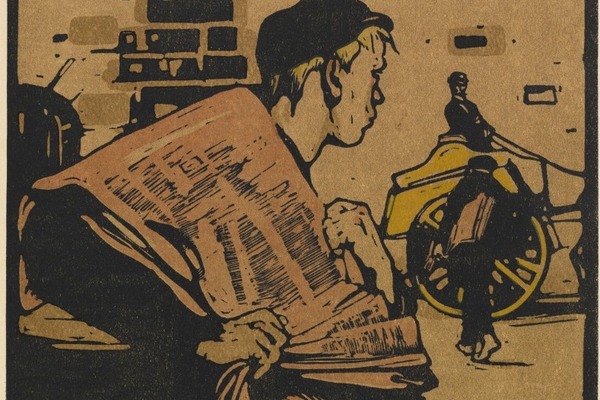
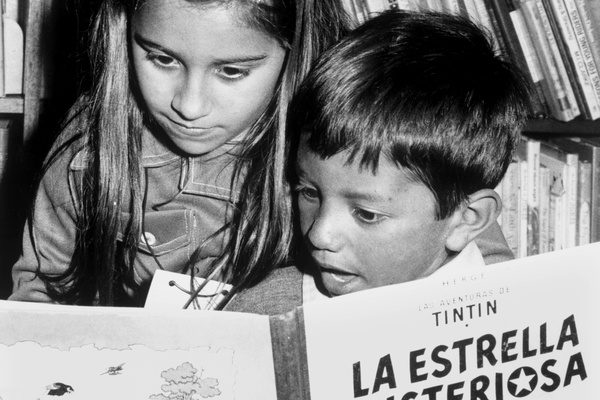


You must be logged in as a member to add comments.
Become a member
Already a member? Log in or create an account.